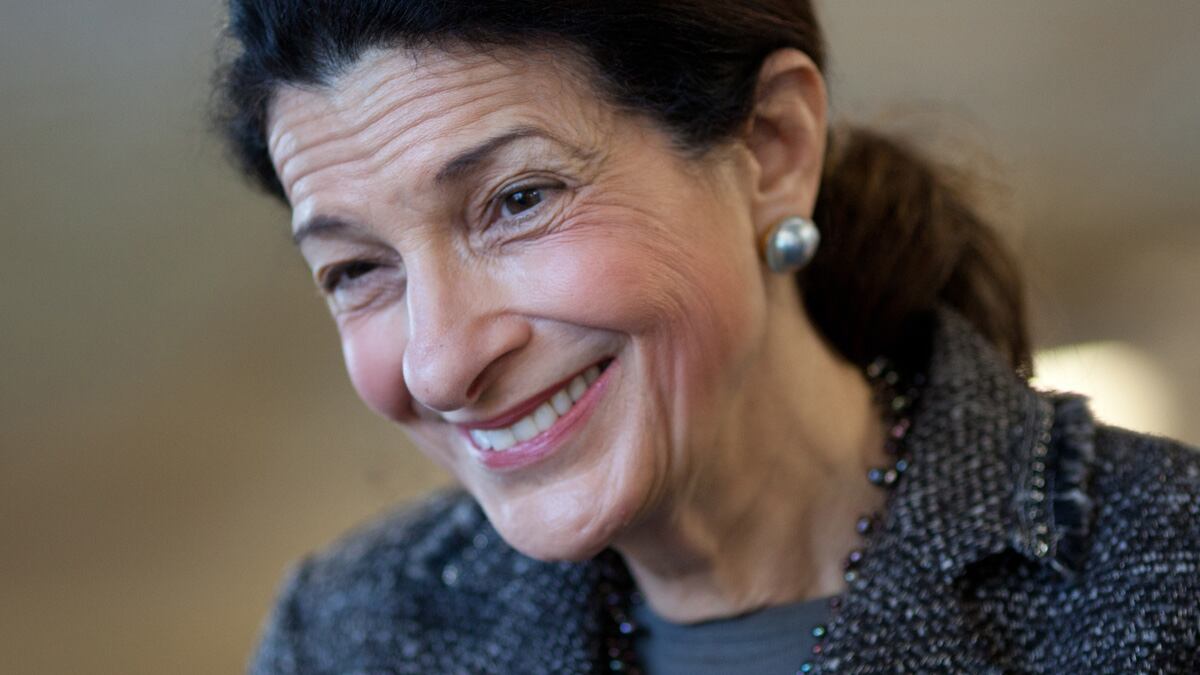Sen. Olympia Snowe’s retirement, announced Tuesday, will mean the loss of yet another moderate for the U.S. Senate. A disproportionate number of the 10 senators who have declined to seek reelection this year tend to stray from their party line, including Snowe, Democrat Ben Nelson of Nebraska, and independent Joe Lieberman, who caucuses with the Democrats. This time next year, only five of the so-called Gang of 14, who sought to find common ground to prevent judicial filibusters in the Bush administration, will remain in the Senate.
But though Snowe said in a statement that she did not want to endure the “continued partisanship of recent years,” it’s also quite likely that after serving 34 years in Washington, 16 in the House and 18 in the Senate, the 65-year-old Maine politician may just be ready to retire. Notwithstanding the continued partisan bickering on Capitol Hill, many of these moderates could just be retiring for the same reason most people do—because they’ve reached or exceeded retirement age. Here’s a look at some of the other older incumbents who are leaving public office this year and why they’re stepping down:
Ben Nelson
Nelson is a 70-year-old Democrat who has served two terms in the Senate representing Nebraska. He has long had a reputation in the Senate for marching to the beat of his own drum and has crossed over to support a number of major Republican initiatives, including the Bush tax cuts and the Iraq War. Nelson was consistently listed as the most conservative Democrat in the Senate by a variety of ranking systems. But while he warned of “the radical left” and “the radical right” in a video he released to announce his retirement, he based his decision on wanting to “move on” and enjoy retirement and the millions he accumulated as an insurance-industry executive, rather than another six years in Washington.

Joe Lieberman
The former Democratic nominee for vice president announced his impending retirement more than a year ago. Lieberman had left himself a man without a party after losing the 2006 Democratic primary over his support for the Iraq War. He then successfully ran for reelection as an independent, effectively as the Republican nominee, although he continued caucusing with the Democrats. Lieberman continued to alienate Democrats by crossing over to campaign for John McCain in the 2008 election, serving as one of the McCain campaign’s most effective surrogates, while maintaining that he was a Democrat. The result left him despised by many Democrats, and while Republicans had supported him in 2006, in the age of the Tea Party it would have been difficult for a candidate who was a crusading liberal on issues like abortion and gay rights to get GOP support. Left with no path to victory, Lieberman opted to go off peacefully into the sunset instead of fighting a doomed battle for reelection.
Kay Bailey Hutchison
The Texas senator would not have been described as a moderate five years ago. Although she did deviate from GOP orthodoxy by being pro-choice, otherwise she was considered a mainstream conservative Republican. But her comparative position changed with the rise of the Tea Party after Barack Obama’s election in 2008. After being recruited to run for governor of Texas in a Republican primary against incumbent Rick Perry, she suffered a shellacking. Despite receiving more than 60 percent of the vote in her 2006 reelection campaign and being considered “the most popular elected official in the state,” she took barely 30 percent of the primary vote after Perry repeatedly accused her of being the candidate of big government. Although she was expected to resign after the GOP primary, win or lose, she was persuaded to carry on in the Senate in order to avoid a risky special election. As expected, the 68-year-old political veteran announced her retirement early last year and hasn’t looked back.
Jim Webb
Unlike his retiring centrist peers, the first-term Virginia senator is by no means a political veteran: his Senate service has been his only experience in elected office. But Webb does have something in common with them—he also is eligible to collect Social Security. The 66-year-old has always been a bit of a lone wolf, and he’s had a varied career as a decorated combat veteran of the Marine Corps, secretary of the Navy, Emmy-winning journalist, and author of six novels. Webb was never wild about some of the nitty-gritty aspects of elected office and was not a very assiduous fundraiser. Considering he has done so many interesting and different things in his life, it seems likely he was just ready for his next career change.
Richard Lugar
Dick Lugar is not retiring. But the center-right Republican from Indiana may not be a candidate this November. He is facing a tough challenge to his right from Richard Mourdock, the Tea Party–backed state treasurer. A foreign-policy mandarin who is well respected on both sides of the aisle, Lugar is a model of an old-guard senator, and he’s had a blessed career, moving effortlessly from Eagle Scout to Rhodes scholar and on into politics. But as an earnest crusader against nuclear proliferation who is spending his 36th year in the Senate, he’s not exactly in tune with the modern Republican electorate. With Mourdock receiving support from right-wing lobbying groups like the Club for Growth and FreedomWorks, Lugar faces a close primary on May 8 and may be the next moderate to leave office. Still, like Olympia Snowe, he can point to increased partisanship and not just a desire for the quiet life as the reason he’s leaving office.






